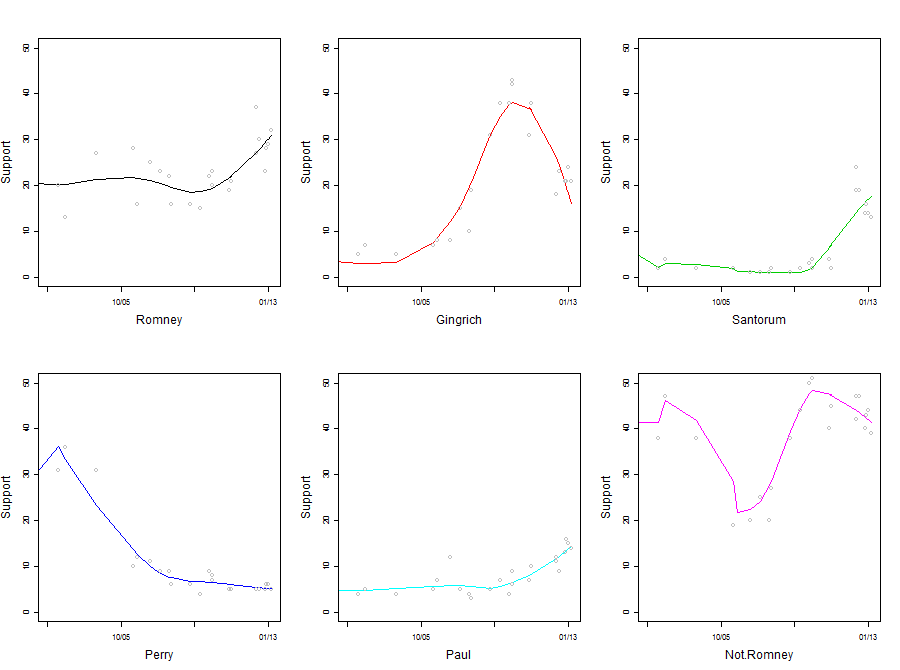SC Coordination Problem?
The emerging narrative from this primary cycle is the battle between “Romney” and “Not Romney.” Just a couple days ago, for example, Nate Silver suggested that Santorum’s path to the nomination required two phenomena:
First, Saturday’s statement would have to get voters to take another look at him at the expense of other conservatives like Mr. Gingrich or Mr. Perry. And second, the negative attacks by Mr. Gingrich would have to succeed in softening up Mr. Romney’s support, but not play to Mr. Gingrich’s direct benefit either, allowing Mr. Santorum to leapfrog both and win with perhaps 25 percent of the vote.
In a way, the narrative argues that the conservative wing of the Republican party suffers from a kind of coordination problem: none of the conservatives want Romney to win, but they cannot quite coordinate their behavior to beat him. Certain candidates have risen but been found unsatisfactory.
Thus, the narrative goes, Romney skates to victory because the conservatives spread their vote so thinly among too many candidates. For anyone (à la Santorum) to win, as Silver describes, a single candidate needs to consolidate the anti-Romney vote.
To what extent is this correct? Nate is correct in his assessment of Santorum’s path forward, but we should not interpret this as affirming the coordination narrative in South Carolina.
The narrative is only correct insofar as the “Not Romney” vote edges out Romney by quite a few points. According to our trend estimates, Romney holds about 30 percent of the vote in South Carolina. By comparison, the sum of support, according to our trend estimates, for Gingrich, Santorum and Perry is almost 42 percent. (I omit Paul because he has a very different base of support, like young and nontraditional Republicans, who would likely not vote for the more conservative candidates, if they voted at all.) From this angle, it looks like the narrative has legs.
There are two major problems, though. The most apparent is that no single candidate could perfectly consolidate all of those “Not Romney” voters. Santorum supporters, for example, split pretty evenly between Perry, Gingrich and Romney if pushed on their second-choice candidates (PPP crosstabs [pdf]).
A second, and less immediately apparent, reason to be skeptical is that even Santorum, Gingrich and Perry combined are losing ground.
True, most of the loss of ground comes from Gingrich tanking. But for Santorum to consolidate the “Not Romney” voters, he would need to be trending upward strongly enough to offset Gingrich’s plummet. He’s not. Even with his slight momentum, the “Not Romney” vote share is still falling (and fast).
After his impending South Carolina win, Romney will effectively end the nomination fight. The narrative of Romney versus “Not Romney” will fade too. For the next few days, however, it would behoove observers to note that even though Santorum is rising in the polls, it does not seem to have much of an effect on Romney’s support, nor does it represent a true consolidation of voters behind a single anything-but-Romney candidate.



No Comments